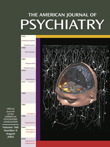Discriminative Validity and Clinical Utility of an Abuse-Neglect Interview for Adolescents With Conduct and Substance Use Problems
Abstract
OBJECTIVE: Many youths with conduct and substance use problems experience abuse and neglect. A valid measure of the severity of abuse-neglect events could facilitate research and clinical care. The authors’ goal was to examine the discriminative validity, clinical utility, and severity correlations of the Colorado Adolescent Rearing Inventory, a structured, 20–45-minute abuse-neglect interview in the assessment of adolescents with conduct and substance use problems. METHOD: Ninety-eight adolescent patients with conduct and substance use problems and 102 comparison subjects (about 40% of the subjects in each group were female) completed the Colorado Adolescent Rearing Inventory, the Diagnostic Interview Schedule for Children, and the Composite International Diagnostic Interview—Substance Abuse Module. RESULTS: Although the subjects were advised that reports of abuse-neglect would be communicated to child welfare agencies, nearly two-thirds of the patients with conduct and substance use problems endorsed items indicating probable abuse-neglect, compared with about a third of the comparison subjects, a highly significant difference. Clinicians judged that 68%–80% of the cases of the patients and comparison subjects who endorsed such items warranted reporting to child welfare agencies. Scores on the Colorado Adolescent Rearing Inventory correlated significantly with severity of substance involvement, conduct disorder, and major depression. Compared to males, significantly more females (including 15% of comparison females) reported sexual abuse. Patients were significantly more likely than comparison subjects to attribute adverse life effects to their reported abuse-neglect experiences. CONCLUSIONS: Colorado Adolescent Rearing Inventory scores revealed many cases of serious abuse-neglect, generated many reports to child welfare agencies, demonstrated discriminative validity, correlated with clinical measures, and reflected important gender differences. The Colorado Adolescent Rearing Inventory can contribute to clinical evaluation and research involving youths with conduct and substance use problems.



